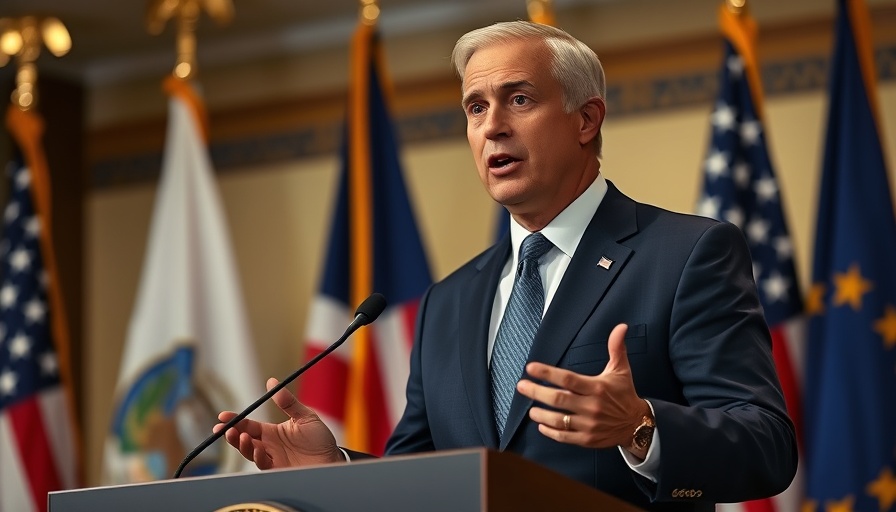
The Critical Role of Narcan in Combating the Opioid Crisis
Narcan, a lifesaving nasal spray that can reverse opioid overdoses, has become a cornerstone in the battle against America’s opioid crisis. With the opioid epidemic exacerbated by the introduction of potent synthetic opioids like fentanyl, Narcan distribution has played a pivotal role in preventing deaths. As reported, the program backed by the Substance Abuse and Mental Health Services Administration (SAMHSA) has not only trained over 66,000 individuals but has also distributed more than 282,500 kits in just one year. This initiative has been hailed as a significant factor in the nearly 24% reduction of overdose deaths reported in recent CDC data, making it particularly alarming that newly proposed budget cuts could jeopardize these life-saving efforts.
A Personal Journey with Addiction: Kennedy's Unique Perspective
Health and Human Services Secretary Robert F. Kennedy Jr., who has faced his own battle with heroin addiction, brings a unique perspective to the dialogue surrounding opioid intervention. Reflecting on his experiences, Kennedy emphasized the necessity for deeper social and spiritual healing beyond just medical solutions. While he acknowledges the efficacy of Narcan, his viewpoint suggests a pivot towards comprehensive rehabilitation and systemic changes in the approach to addiction treatment.
Concerns from Experts: Risks of Ending Narcan Funding
Experts and addiction specialists have raised significant concerns about the ramifications of cutting the Narcan program. Critics argue that while seeking broader societal changes is essential, dismantling existing life-saving mechanisms can leave vulnerable populations at greater risk. How will the reduction of this funding affect those who rely on immediate access to Narcan during an overdose crisis?
The sentiment is clear: enabling communities with the tools they need today must go hand-in-hand with pursuing long-term solutions. Public health advocates warn that the momentum gained from recent declines in overdose deaths could quickly reverse if access to essential resources like Narcan is limited.
Broader Implications of Policy Changes
The potential decision to end the Narcan distribution grant might reflect a broader trend in the U.S. healthcare policy landscape, where prioritizing immediate, tangible solutions sometimes competes with more nuanced approaches to public health issues. As Kennedy's new proposal underscores, society needs to foster a comprehensive understanding of addiction—one that values not only clinical interventions but also emotional and social support systems. This layered understanding of health informs how communities can approach the opioid crisis effectively.
The Future of Overdose Prevention: Integrative Approaches Needed
As the conversation evolves around opioid dependency and overdose prevention, it becomes necessary to integrate various approaches. While Narcan distribution addresses immediate crises, addressing the root causes of addiction may require improvements in mental health services, community support structures, and educational outreach programs. Taking a holistic view could serve as a compelling solution to this escalating public health dilemma.
What Can You Do? Advocate for Narcan Support
As citizens concerned about the well-being of our communities, advocating for continued support for Narcan and other overdose prevention tools is vital. Engage in conversations about the importance of Narcan in local health policies and support initiatives aimed at expanding access to addiction treatment resources. Advocate for measures that not only distribute Narcan but also provide comprehensive support to those in recovery.
 Add Row
Add Row  Add
Add 




Write A Comment